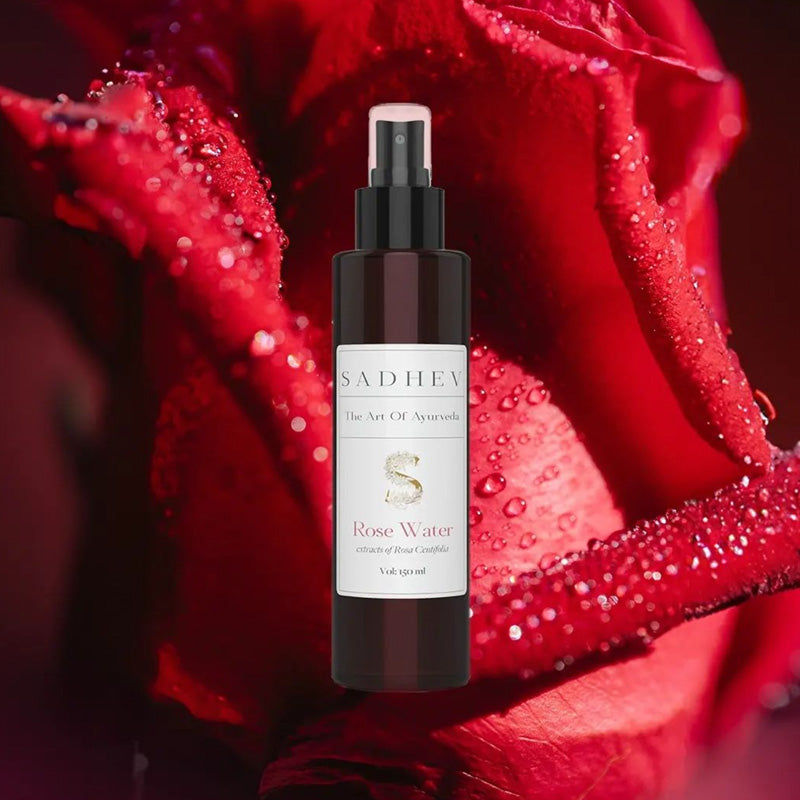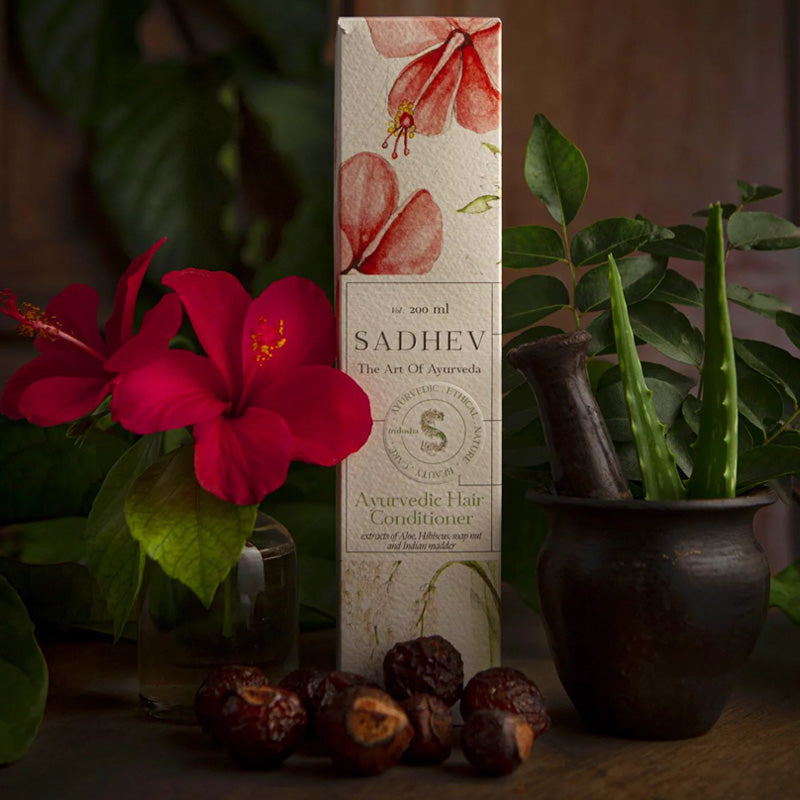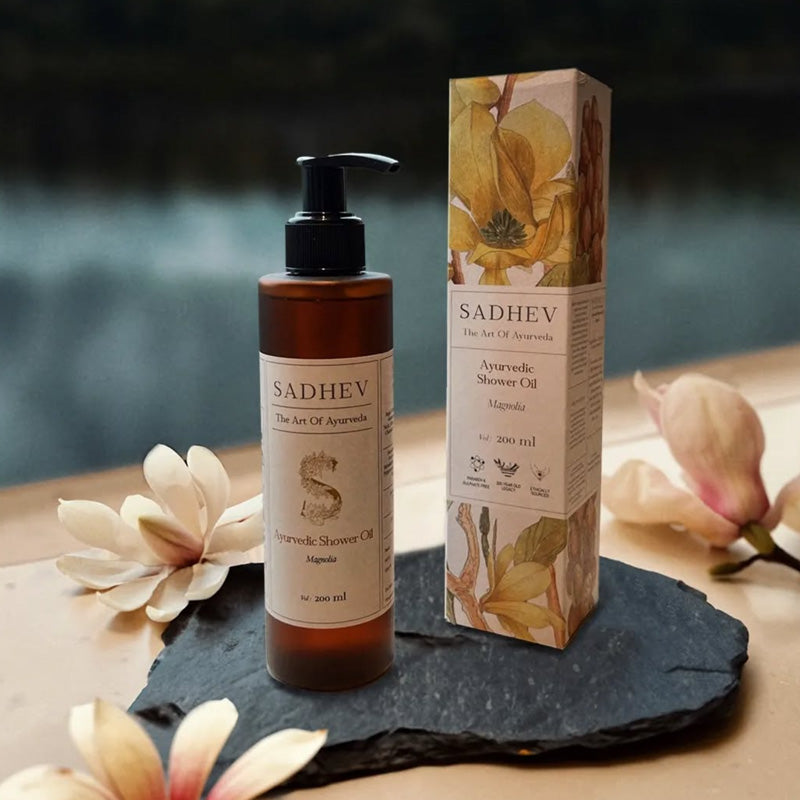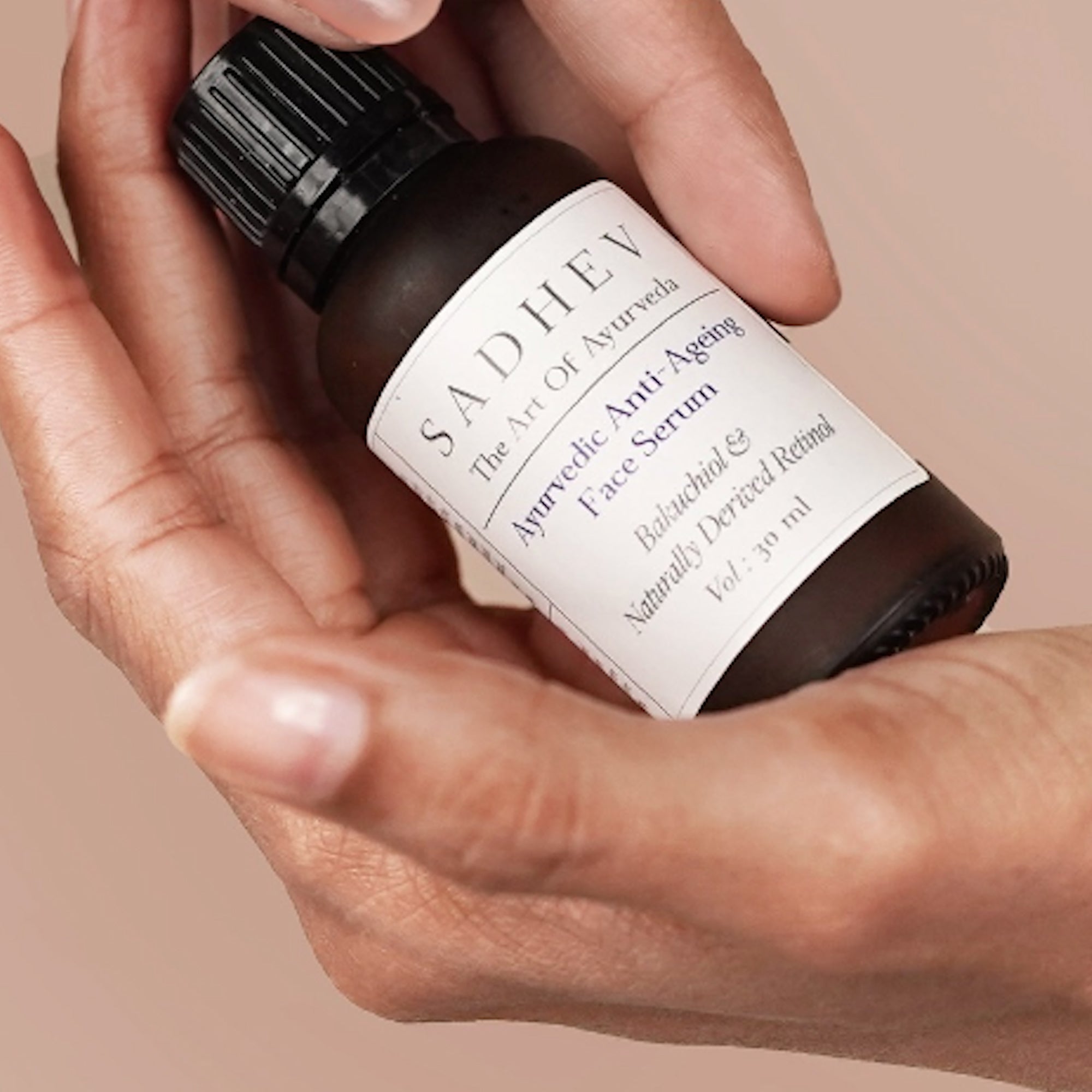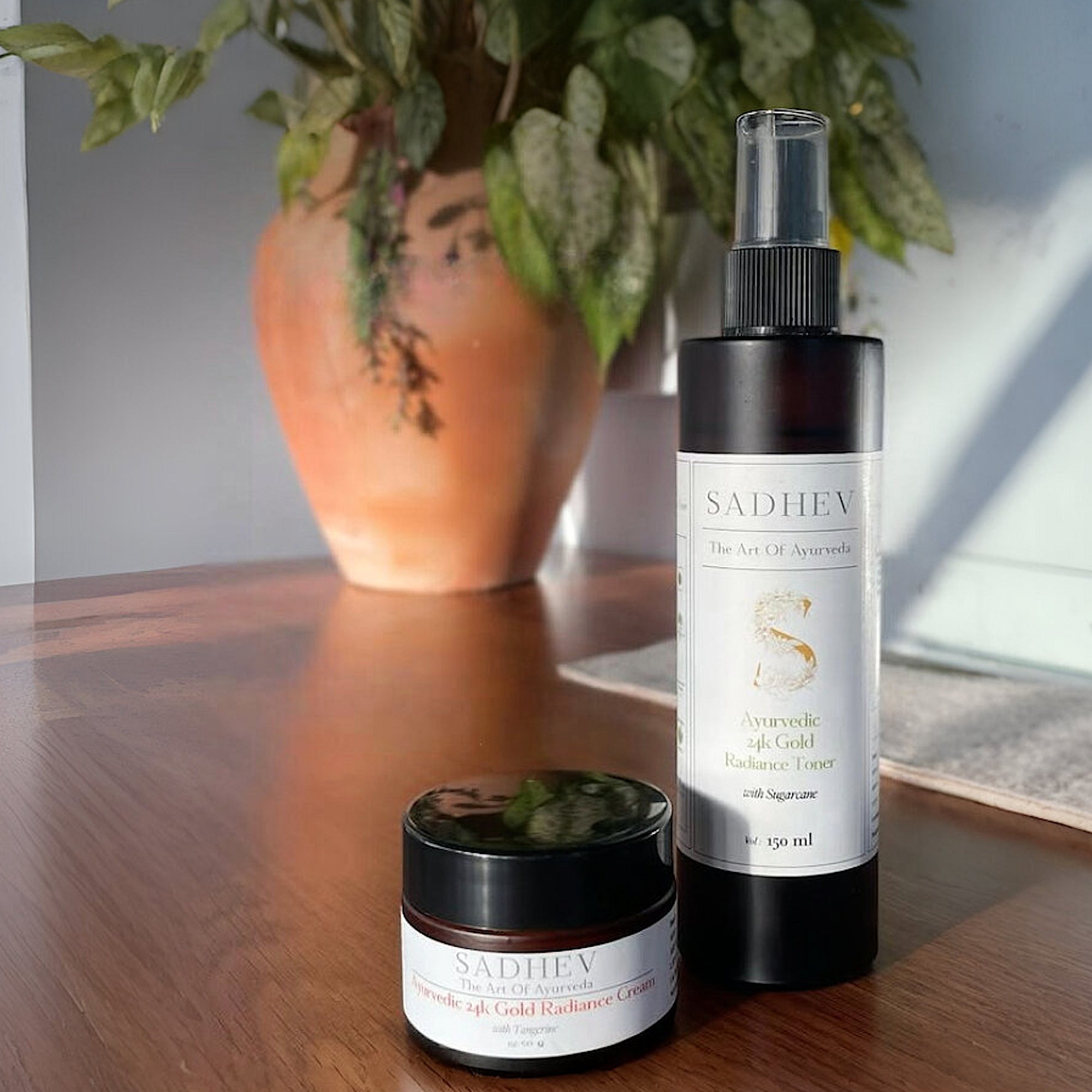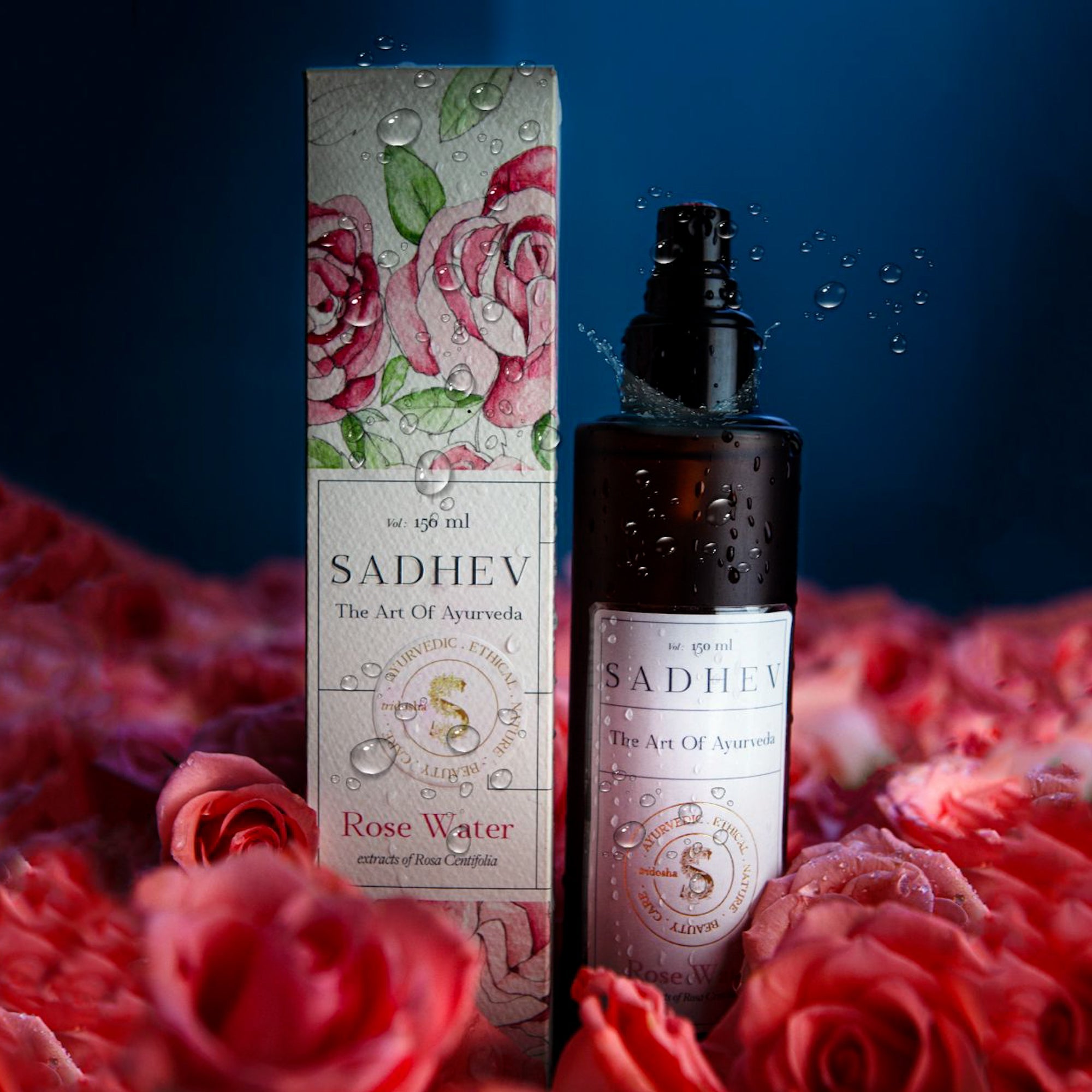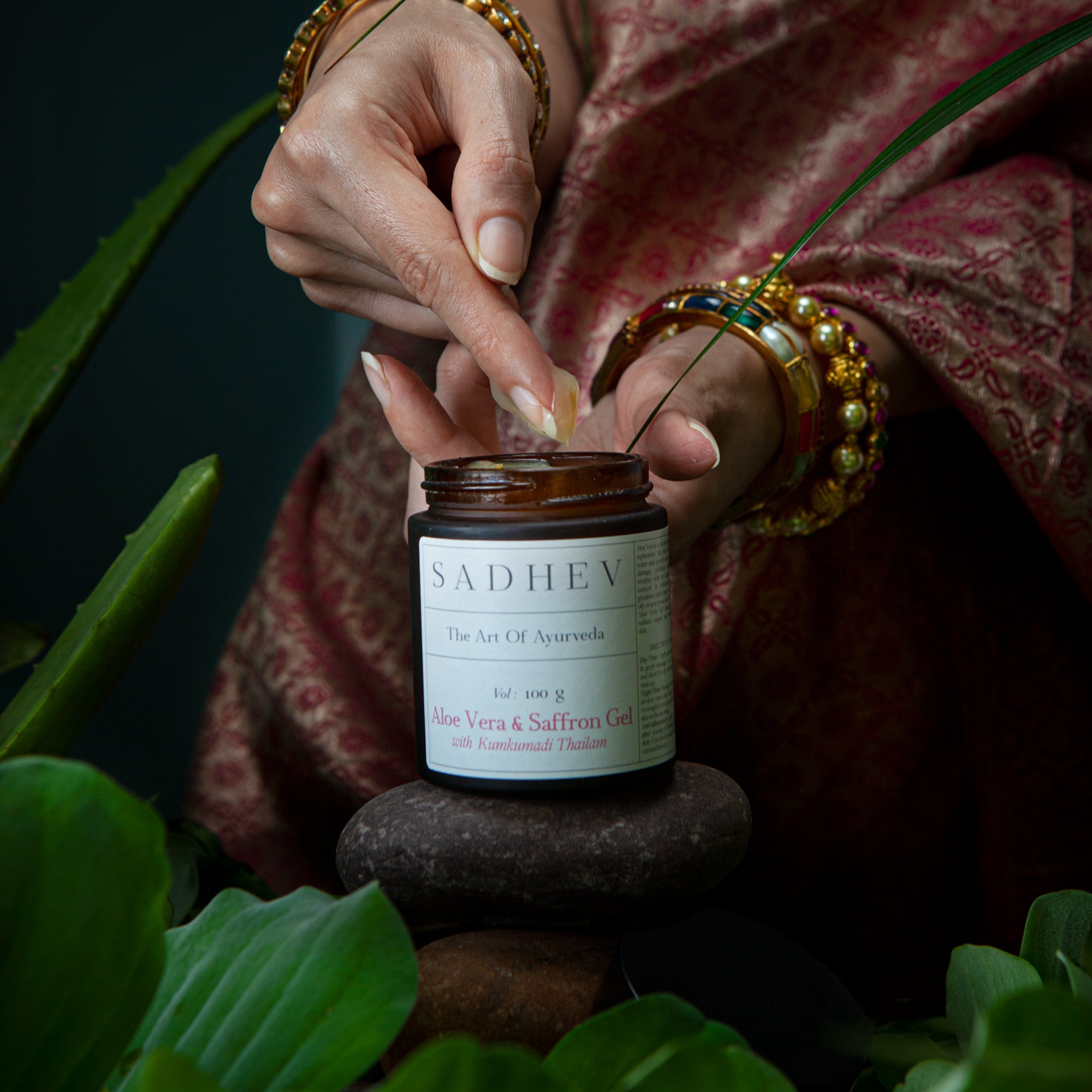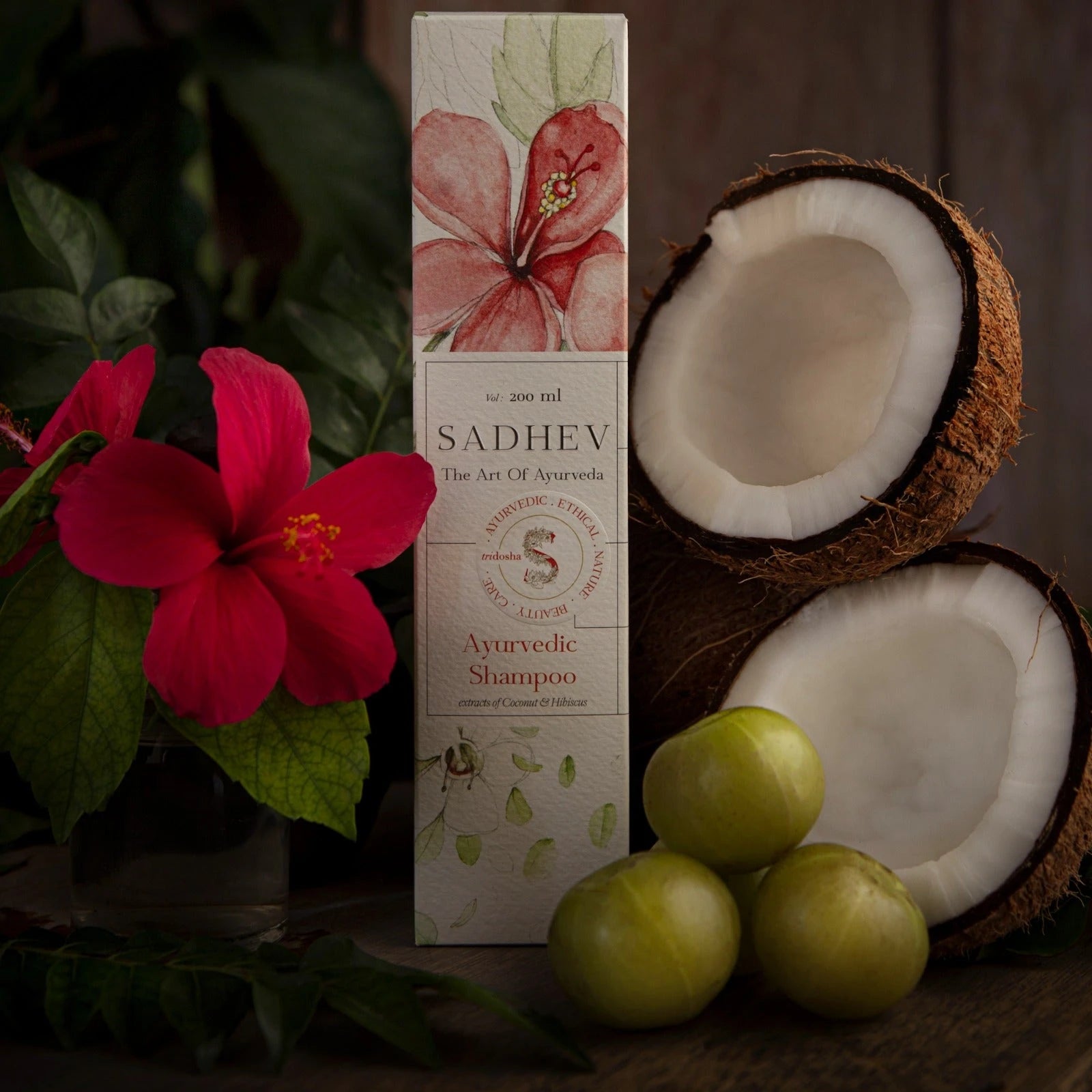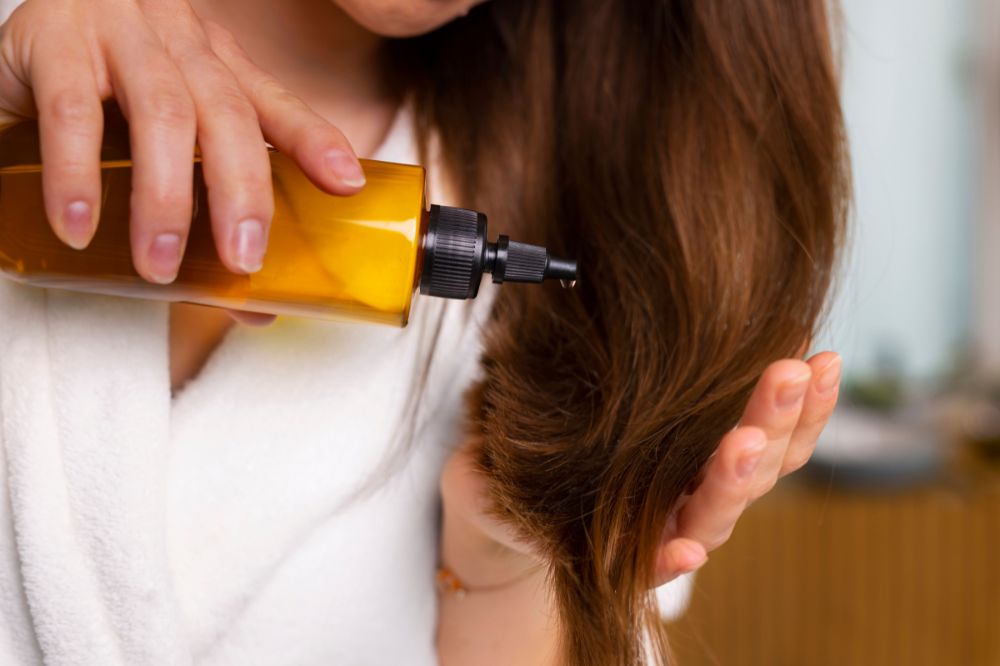Dandruff is a common scalp condition, whereas dry scalp is a common skin condition. Symptoms like flakiness are common in both cases but the causes, and treatments will vary. In this blog, we will apprise you of the major difference between dandruff and dry scalp.
What Is A Dry Scalp?

A dry scalp is characterized by dry, white flakes on the scalp and is caused by a lack of moisture in the scalp which is very much common in people with dry skin. Common causes of dry scalp include cold, dry air, over-washing of hair multiple times a week, or dehydration. (1)
Additionally, certain skin conditions like eczema or psoriasis can contribute to dry scalp. A dry scalp can be managed by using moisturizing shampoos and scalp treatments that contain hydrating elements.
Using a shampoo made of natural ingredients like Sadhev Ayurvedic Shampoo is important to maintain a hydration levels as it does not hamper the moisture balance of your scalp.
Causes Of Dry Scalp
Dry scalp is caused by a number of things that cause dry skin on your scalp, leading to itching and flaking. Knowing the causes of dry scalp is essential for managing and treating the condition.
1. Weather Conditions
A dry scalp can be caused by low humidity and cold weather. During winter months or in dry environments, the lack of moisture in the air can affect the scalp’s hydration levels.
2. Dehydration
A dry scalp can also be caused by not drinking enough water. You need to stay hydrated to keep your skin healthy, including your scalp.
3. Skin Conditions
Some underlying skin conditions like dermatitis, psoriasis, and eczema are major contributing factors for dry scalp. These conditions interfere with the skin’s natural moisture balance, causing dryness, itching, and flaking.
4. Use of Harsh Hair Products
Overwashing your hair, especially with harsh shampoos, can strip the scalp of its natural oils, contributing to dryness. It’s important to find a balance in hair washing frequency to avoid exacerbating dry scalp. You can use a natural Ayurvedic shampoo like Sadhev Ayurvedic Anti-Hairfall Shampoo that does not damage the scalp and nourishes it with Bhringraj for hair regrowth.
What Is Dandruff?

Dandruff is a mild type of seborrhea dermatitis which is characterized by red, greasy, and flaky patches of skin on your scalp. It’s caused by a fungus called Malassezia globeosa. Malassezia breaks down sebum, releasing oleic acid as a by-product. Oleic acid can irritate your scalp. Dandruff is often associated with itchiness and can be treated with antifungal shampoos that can rid your scalp of the fungus and help maintain scalp health. (2)
Causes Of Dandruff
Dandruff is a common scalp condition that is primarily caused by a combination of factors such as the following.
1. Fungal Infection
Malassezia is a yeast-like microorganism that grows on the scalp and causes dandruff in some people. This fungus naturally lives on the scalp, but for some people, it can overgrow and cause an inflammatory response, leading to the development of dandruff. (3)
2. Oily Skin/Scalp
People who have a naturally oily scalp can suffer from dandruff due to the overproduction of sebum, the natural oil produced by the skin’s oil glands. This excess oil provides a favourable environment for the Malassezia fungus to grow and thrive.
3. Hormonal Changes
Hormonal fluctuations, particularly during puberty, can lead to an increase in oil production and a higher risk of developing dandruff. (4)
4. Harsh Shampoos And Hair Care Products
Some hair care products can irritate your scalp and make dandruff worse. Hair care products that irritate your scalp, like harsh shampoo, can upset your skin’s natural balance and cause dandruff.
Difference Between Dry Scalp And Dandruff
Let us understand how dandruff vs dry scalp differ from each other.
| Factors | Dry Scalp | Dandruff |
| Scalp Condition | Dry scalp is caused by a lack of moisture and hydration in the skin on the scalp. | Dandruff is a result of a fungal infection, specifically the Malassezia fungus, which leads to an overproduction of skin cells. |
| Hair Appearance And Health | A dry scalp can make your hair look dry, frizzy, and dull. | Dandruff is most commonly associated with oily, greasy hair. |
| Appearance of Flakes | The flakes associated with dry scalp are small, dry, and white in colour. | Dandruff flakes are typically larger, oily, and can have a yellowish or white tint. |
| Treatment | Dry scalp is typically treated with moisturizing shampoos and scalp treatments containing ingredients like niacinamide and glycerin. | Dandruff is managed with antifungal shampoos containing active ingredients that can fight the fungal infection. |
How To Prevent Dandruff Vs Dry Scalp?
Preventing causes of dry scalp and dandruff involves maintaining a healthy scalp environment and following proper hair care practices. Check out some tips below:
Proper Hair Care Routine
Use a gentle, sulfate-free shampoo and conditioner to cleanse and moisturize the scalp without stripping away natural oils. You can use Sadhev’s Ayurvedic Anti-Dandruff Shampoo which is a natural scalp cleanser that nourishes the hair, moisturizes the scalp, and improves overall hair health.
Proper Hydration Techniques
Incorporate scalp massages into your hair care routine with natural oils like coconut oil or argan oil to hydrate and nourish the scalp. Choose Sadhev’s Anti-Dandruff Oil to effectively hydrate the scalp. It can also help fight infection & eliminate causes of dandruff. It acts as a natural antioxidant & conditioner.
Dietary Considerations
Ensure a balanced diet rich in vitamins and minerals, particularly zinc and B vitamins, which are essential for scalp health. Include foods such as flaxseeds, chia seeds, walnuts, pumpkin seeds, lentils, whole grains, legumes, and leafy greens. Aim to drink at least eight glasses of water per day to keep your scalp and skin adequately hydrated.
Last Words
We hope this blog enhances your perspective in terms of your outtakes on dandruff and dry scalp. So the next time your hair and scalp give you a dry and rough time, we think you will make good use of this knowledge. No matter what your hair concern is, Sadhev’s hair care products are here to help you manage your hair issues in the most potent way. These hair care products are vegan, Ayurvedic and sans any parabens m, sulphates or other toxic additives. So, check out the website and put together a befitting hair care routine that will make your tresses as fabulous as you are!
FAQs
Q. How do you hydrate your scalp?
A: To hydrate your scalp, use a gentle shampoo and then apply a moisturizing conditioner. Additionally, drinking plenty of water and consuming a balanced diet can help hydrate your scalp from within.
Q. Should I wash my hair everyday if I have a dry scalp?
A: No, you should wash your hair less often if your scalp is dry. If you wash your hair too often, your scalp will lose its natural oils, causing it to dry out and irritate. Try to wash your hair once a week or once every 2 to 3 days, depending on the hair type and your scalp condition.
Q. What oil is best for dry scalp?
A: For a dry scalp, a nourishing oil like coconut oil and jojoba oil can be beneficial. Engage in a hot oil treatment just before washing your hair to help rebalance the scalp. Use Sadhev’s Ayurvedic Hair Conditioner to lock in the moisture and hydration.
Q. Can too much oil cause dandruff?
A: Yes, dandruff can be caused by excess oil on your scalp. Dandruff occurs when there is too much oil on your scalp and the fungus grows out of control, causing it to flake and itch.

































